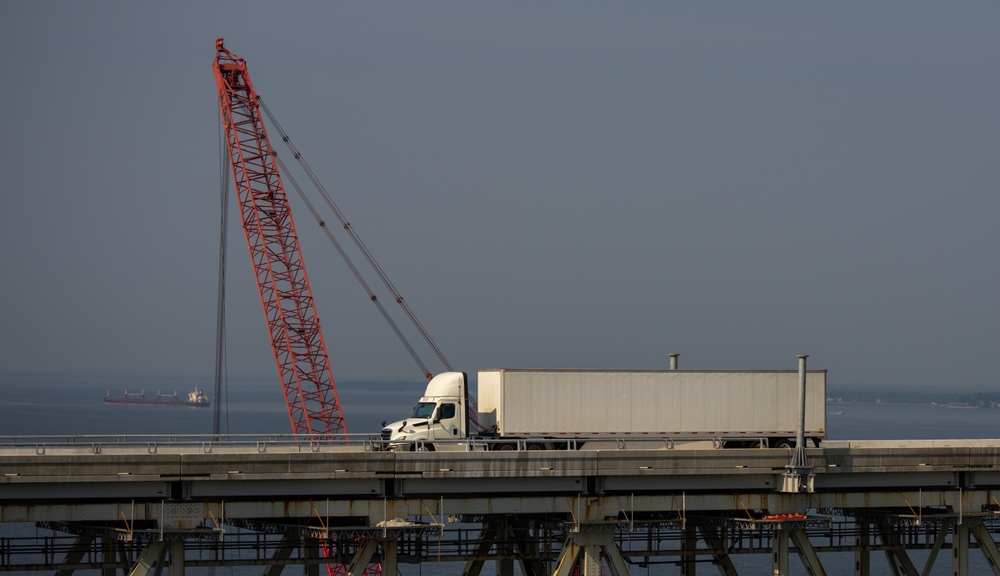How Mass Deportations Could Impact the U.S. Food Supply Chain
As the Trump administration intensifies mass deportation efforts, experts warn that removing undocumented immigrants could have major repercussions on the U.S. food supply chain, echoing the labor shortages seen in the U.K. after Brexit. With immigrant workers making up a significant percentage of the agricultural and food processing workforce, industry leaders fear disruptions from farm fields to grocery stores.
Lessons from Brexit: A Warning for the U.S.
Barbara Guignard, a principal at Efficio, a global procurement and supply chain consultancy, compares Trump’s immigration policies to the U.K.’s restrictive labor measures following Brexit. In an interview with FreightWaves, Guignard said:
“Trump’s plans to crack down on illegal immigration strongly remind me of what happened with Brexit. When the U.K. chose to restrict access to immigrant labor, it created a major crisis in the agricultural sector.”
In the U.K., new visa requirements forced seasonal farmworkers to leave and not return. This, combined with pandemic-related border closures, resulted in severe labor shortages. Supermarkets saw empty shelves, and fresh produce became harder to source.
Guignard warns that a similar labor gap in the U.S. could significantly impact key crops like citrus, lettuce, and berries, triggering a ripple effect in processing, logistics, and overall food prices.
U.S. Immigration Crackdown and Its Effect on Food Supply
Since Trump returned to the White House on January 20, his administration has declared illegal immigration a national emergency. The Department of Homeland Security (DHS) has expanded mass deportations, removing thousands of undocumented workers across various industries.
- DHS reported 8,768 arrests as of February 3.
- Mexico received 14,470 deportees, including 11,379 Mexicans and 3,091 foreign nationals, according to Mexican President Claudia Sheinbaum.
- Over 8 million undocumented immigrants work in the U.S. economy, about 5% of the total workforce, with the highest numbers in:
- Construction (1.5 million)
- Restaurants (1 million)
- Agriculture (320,000)
- Landscaping (300,000)
- Food processing and manufacturing (200,000)
John Walt Boatright, Director of Government Affairs for the American Farm Bureau, emphasized that the agriculture sector heavily relies on immigrant labor:
“Agriculture, and our economy, rely on foreign workers to put food on the table. Solutions should ensure industries like farming, processing, and food services are not harmed by unintended consequences.”
Industry Concerns and Economic Risks
The agricultural sector in states like Florida, California, and Texas could be hit hardest by labor shortages. According to Thomas Kennedy of the Florida Immigrant Coalition, 37-47% of Florida’s agricultural workforce are noncitizens, many of whom lack legal status.
The effects of these deportations are already being felt:
- A Detroit-based nonprofit, Hey Y’all Detroit, was forced to shut down its food distribution program due to disruptions in its Texas-based farm supply chain.
- Grocery prices could rise if farms struggle to find workers for harvesting, packing, and transportation.
- Restaurants and food processors may face labor shortages, delays in product availability, and increased costs.
Dante Galeazzi, President and CEO of the Texas International Produce Association, has not yet seen major disruptions in Texas farms but says the industry is preparing for potential workforce losses.
Why Domestic Workers Are Unlikely to Fill the Gap
After Brexit, the U.K. government launched a campaign called ‘Pick for Britain’, encouraging British citizens to take over farm jobs once held by migrants. However, the initiative failed due to:
- The physically demanding nature of farm work.
- The seasonal and temporary nature of the jobs.
- Lower wages compared to other industries.
“It’s unrealistic to assume that domestic workers will take on these roles instead of immigrants,” Guignard explained. “The reality is these jobs are tough, seasonal, and poorly paid, making them unattractive to local workers.”
What’s Next for the U.S. Food Industry?
Experts urge supermarkets, restaurants, and food distributors to:
✅ Diversify supply chains to reduce dependency on specific regions.
✅ Strengthen relationships with suppliers to secure inventory access during shortages.
✅ Explore automation in agriculture for harvesting and packaging.
While the long-term effects of mass deportations remain uncertain, food industry leaders are bracing for supply chain disruptions similar to those experienced in the U.K. after Brexit. The coming months will reveal whether domestic policies will further strain the U.S. food economy or if alternative labor solutions can prevent widespread shortages and price hikes.
Source:
https://www.freightwaves.com/news/mass-deportations-could-disrupt-us-food-supply-chain-experts-say












Leave a Comment